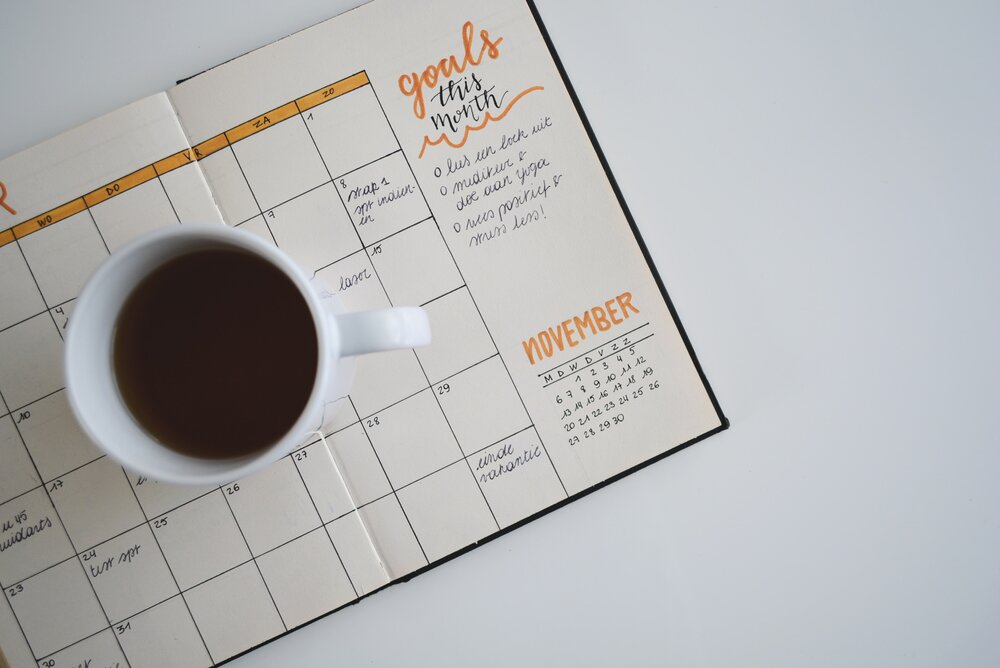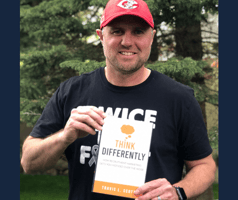Photo by chmyphotography on Unsplash
OKRs and Your Career

Perhaps you've heard of OKRs - Objectives and Key Results. Maybe you're lucky enough to work for a manager or company that has implemented them.
If you haven’t, this article will provide more detail into what they are and how they can be a powerful tool for your career.
What are OKRs?
The concept of OKRs isn’t new. In fact, it has been around (at least formally) since the 1970s. It was developed and implemented at Intel by Dr. Andy Grove.
As mentioned, OKR is an acronym for Objectives and Key Results.
The objective is the what. The key results are how you accomplish the objective.
I'm sure your manager has laid out some goals or things he or she would like you to accomplish in the upcoming year. That's a great place to start. But I would take it one step further and make it more personal.
Are there specific skills you need to learn before making your next career move? What about gaps in your experience that you need to fill before you can make your next move? Do you have a plan for how you will accomplish that?
Those would be examples of great objectives.
If you'd like to learn more about OKRs check out Donald Sull's interview with John Doerr (https://sloanreview.mit.edu/video/john-doerr-on-okrs-and-measuring-what-matters/).
Why should I use them?
A huge benefit of creating personal OKRs for yourself is to close any experience or skills gaps needed prior to taking the next step in your career. It also helps you track and document what you’ve done and to stretch yourself. These last two are covered in more detail later in this article.
What happens when you decide to throw your hat in the ring for a promotion or another role at your company? Or if you want to apply to a role at another company?
That’s right. You have to break out your resume and update it with what you've done since you accepted the role you're in now. It's not easy. If you’re like me, when it comes time to write about yourself, the cursor on the screen just flashes and flashes.
Most people use their resumes to paint a picture of what they do, but what you've accomplished and shipped, is more important.
Are your days used to move you forward or are you just going through the motions? Watching the clock? That’s what hiring managers want to know.
Not many people keep a running tab of their accomplishments, small victories, or the impactful things they've accomplished over the past few months, let alone years.
When you have to update your resume, you have to sit and think about all of the things you've done. It's difficult.
One thing you could do is keep a notebook, analog (e.g. pen and paper) or digital (e.g. Evernote), and reflect each month about what you've accomplished. You could also do this whenever a big accomplishment happened or you could keep a daily journal.
That's also difficult to do and time-consuming. Plus, the chances of you keeping it up are slim.
A better alternative is to create 3-5 OKRs. By doing this, you’ll have no choice but to push yourself and grow professionally.
The Benefits
As a marketing leader with direct reports, I've implemented a formal OKR system among my team. There are many benefits to using an OKR system, but there are five primary benefits, according to John Doerr, author of "Measure What Matters."
They are:
- Focus
- Alignment
- Commitment
- Tracking
- Stretching
They form the acronym FACTS.
These benefits are somewhat self-explanatory, but I’ll highlight what they mean, just in case:
Focus: When you set objectives, you are no laser-focused and everything you do is related, in some way, to achieving that objective. Improved focus helps deflect distractions from derailing you.
Alignment: this is probably more applicable when OKRs are done at the company or organization-level, but they could also align your professional goals with your values and long-term career objective.
Commitment: Having a plan helps you commit or stick to it. When you know what you want to accomplish and what you need to do it, it’s easier to stay the course.
Tracking: This is a key benefit. Creating OKRs allows you to track your progress as well as document what you’ve accomplished each quarter or year. This makes revising your resume and providing examples during interviews immeasurably easier.
Stretching: You want to stretch yourself. That's how you grow. You’ll want to create rather aggressive objectives. Objectives that will stretch you out of your comfort zone and help you achieve things you may not have thought possible. This is something you can talk about during interviews but, most importantly, it will build confidence in yourself. Genuine confidence comes through during an interview and can oftentimes be the difference between you being picked or someone else.
You may not reach 100% of your goal, but if you can obtain between 70%-100% completion and still make a significant impact, that's a win.
How do I create them?
A key aspect of creating a good objective is to follow the SMART goal methodology of:
- S = Specific
- M = Measurable
- A = Attainable
- R = Relevant
- T = Time-Bound
By ensuring your objectives are SMART, it allows you to know when you’ve accomplished it, helps you build a realistic objective and creates urgency by setting a completion date.
Another benefit of creating OKRs - both personally and related to your company’s core objectives - is that it helps you know when to say yes or no to projects that come your way. Not every project is a good one to say yes to. Not every task is good to say yes to.
Alternatively, some projects or tasks you may have been inclined to turn down prior to creating OKRs may actually fit into the key results you’ve listed - or may not have thought of - and will ultimately help you achieve your objectives.
In summary
OKRs are extremely useful tools for both organizations and individuals. They help you focus on what’s most important and help clarify decision making.
They can be invaluable to advancing your career and make updating your resume and interviewing much easier- almost fun.
If you’d like to ask me any questions about OKRs email me at travis.scott@gmail.com
*Photo by Estée Janssens on Unsplash
-1.png?width=500&height=125&name=Website%20Logo%20-%20400x100%20(transparent%20background)-1.png)


